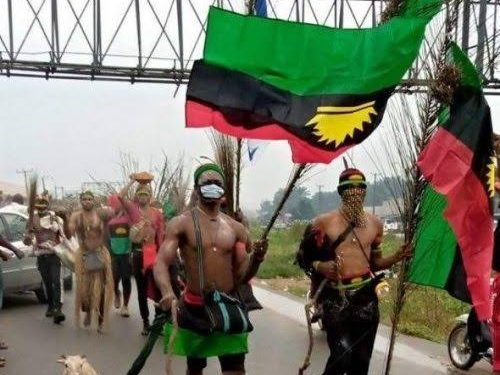There are no products in your shopping cart.
| 0 Items | £0.00 |


SECESSIONIST group the Indigenous People of Biafra (Ipob) has conceded that it does not have the capacity to force non-Igbo minority groups from the old Eastern Region to join its quest to create a breakaway republic.
Between July 1967 and January 1970, during the Nigerian Civil War, the independent state of Biafra, made of up the peoples of the old Eastern Region existed. However, all the non-Igbo speaking members of the former republic are now in the south-south geo-political zone and are not keen on joining an Igbo-dominated breakaway nation.
Finally acknowledging that it has a problem on its hands, Ipob has admitted that Biafra is optional for non-Igbo ethnic nationalities of the old Eastern Region. Ipob spokesman Emma Powerful, has said his association would not coerce other ethnic nationalities to be a part of Biafra.
Mr Powerful said: “Any tribe or ethnicity who doesn’t want to be part of Biafra will never be forced to do so. Such tribes are free to go on their own but you must conduct a referendum for your people to decide their fate on the agitation for Biafra.”
He recalled that Igbos never fought other ethnic nationalities in the old Eastern Region in the past because they believe in unity. Mr Powerful added that the likes of the Ijaw and others from the Mid Western region would still be seen as Igbo brothers and sisters.
“We can attest that Igbo people never fought against any tribe in olden days because Igbo believe in live and let live. Igbo are not going to force anybody to join the fight for Biafra but let every tribe try what they can to wake up for their freedom because freedom is good and remains the best for all of us,” Mr Powerful added.
Ipob, led by Nnamdi Kanu has been at the forefront of the agitation for the actualisation of Biafra lately. This agitation had led to the arrest and prosecution of Mr Kanu by the Nigerian government as he is facing terrorism and treason charges in the federal high court.